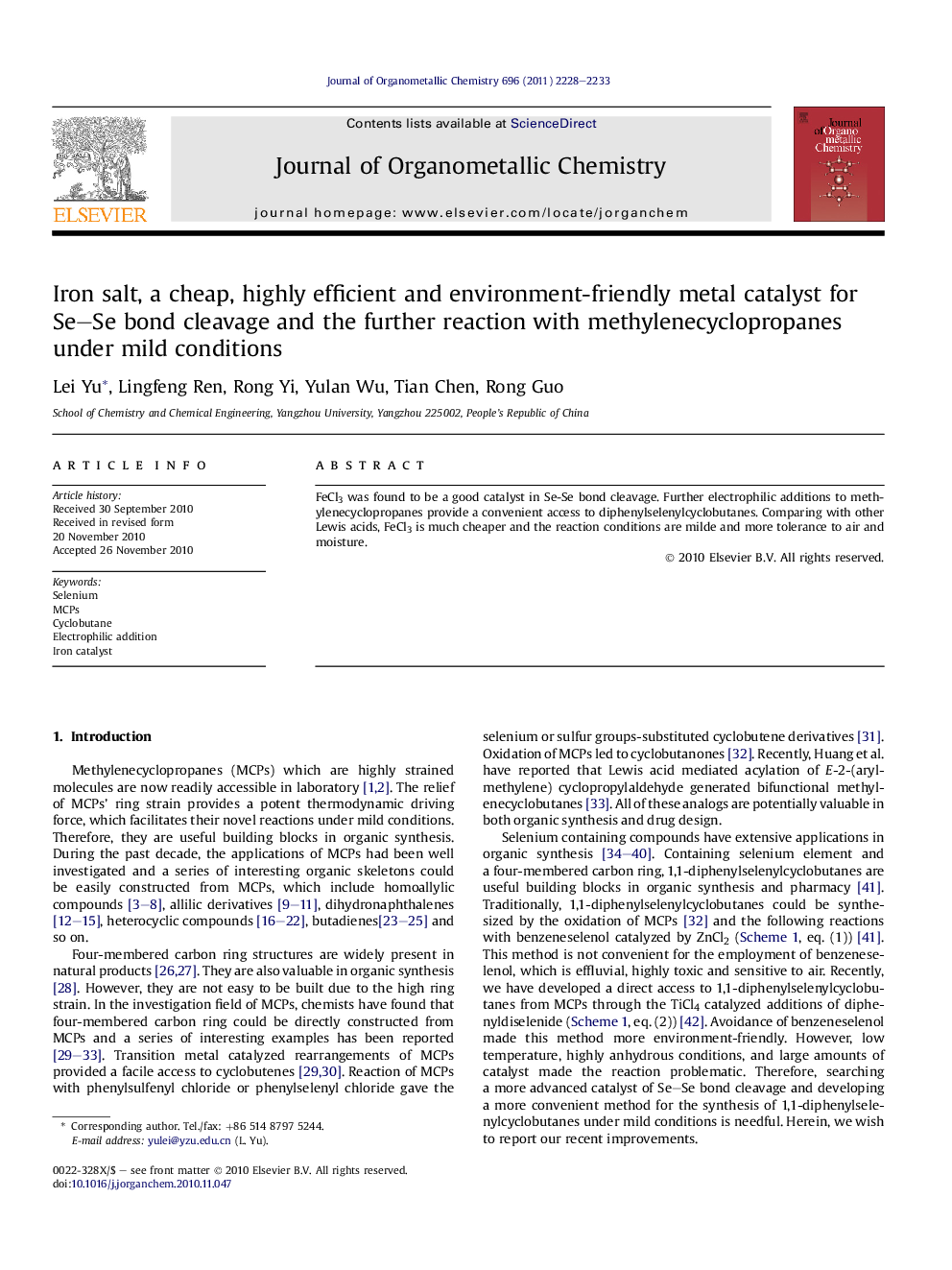| Article ID | Journal | Published Year | Pages | File Type |
|---|---|---|---|---|
| 1326658 | Journal of Organometallic Chemistry | 2011 | 6 Pages |
FeCl3 was found to be a good catalyst in Se-Se bond cleavage. Further electrophilic additions to methylenecyclopropanes provide a convenient access to diphenylselenylcyclobutanes. Comparing with other Lewis acids, FeCl3 is much cheaper and the reaction conditions are milde and more tolerance to air and moisture.
Graphical abstractIron(III)-catalyzed cleavage of Se–Se bond could generate selenium cations. Further electrophilic additions to methylenecyclopropanes (MCPs) provide a convenient access to synthetic useful diphenylselenylcyclobutanes. Comparing with other Lewis acids, FeCl3 is much cheaper and the reactions are much more tolerant to air and moisture. This FeCl3-catalyzed reaction can be carried out at room temperature and the yields are generally good. All of these advantages facilitate its applications in organic synthesis.Figure optionsDownload full-size imageDownload as PowerPoint slideHighlights► In this study, we developed a more advanced synthesis of diphenylselenylcyclobutanes. ► The catalyst FeCl3 is very cheap and its dosage is lower. ► The reaction could be taken under mild conditions. ► Moreover, FeCl3 are more tolerance to air and moisture. ► All of these advantages facilitated the operations.
